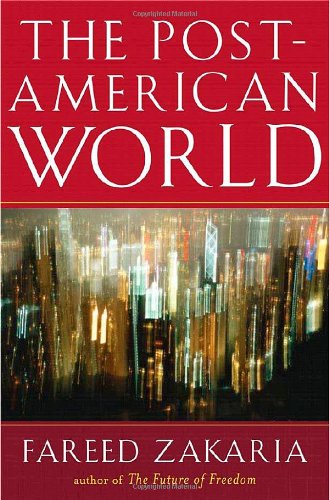

It has also proposed the “Belt and Road Initiative” to enhance connectivity and cooperation in global development. In addition to its roles in existing international institutions, China has played a leadership role in establishing and expanding the Shanghai Cooperation Organization (SCO), setting up the Asian Infrastructure Investment Bank (AIIB) and the BRICS Development Bank. It has also become more active in global governance. China is vigorously projecting soft power and presenting a peaceful image abroad by promoting cultural, educational, sports, tourism, and other exchanges. With continued economic growth China is expected to widen and deepen its global search for energy and other resources and to expand its investment, market, and political clout. To adjust to changing international and domestic conditions, Chinese foreign policy has become more active, pragmatic, and flexible. And as I said, this just scratches the surface.Since the late 20th century, China has been transforming itself from an isolated and backward agrarian society into a modern economic superpower with global interests and responsibilities. Palmer, The Age of the Democratic Revolution Avi Shlaim, The Iron Wall: Israel and the Arab World Stephen Van Evera, Causes of War Samuel Huntington, Political Order in Changing Societies Tony Smith, The Problem of Imperialism and Philip Knightley's The First Casualty: The War Correspondent as Hero, Propagandist, and Myth-Maker. Blanning, The Origins of the French Revolutionary Wars R. So that's 10, but I can't resist tossing in a few others in passing: Geoffrey Blainey, The Causes of War Douglas North, Structure and Change in Economic History Valerie Hudson and Andrea den Boer, Bare Branches: The Security Implications of Asia's Surplus Male Population Robert Gilpin, The Political Economy of International Relations Steve Coll, Ghost Wars T.C.W. Where did the modern world come from, and what are the political, economic and social changes that it wrought? Polanyi doesn't answer every question, but he's a good place to start.

#BEST INTERNATIONAL RELATIONS BOOKS 2018 FULL#
And Kissinger's portraits of his colleagues and counterparts are often candid and full of insights. But if you want some idea of what it is like to run a great power's foreign policy, this is a powerfully argued and often revealing account. Memoirs should always be read with a sceptical eye, and Kissinger's are no exception. Henry Kissinger, White House Years & Years of Upheaval This book will help you understand where it came from and why it endures 9. The state is the dominant political form in the world today, and nationalism remains a powerful political force. David Halberstam, The Best and the Brightest Reading Scott's work (to include his Weapons of the Weak and Domination and the Arts of Resistance) provided the intellectual launching pad for my book Taming American Power). And it's a book that aspiring "nation-builders" and liberal interventionists should read as an antidote to their own ambitions.

Scott pins the blame for these grotesque man-made disasters on centralised political authority (ie, the absence of dissent) and "totalistic" ideologies that sought to impose uniformity and order in the name of some dubious pseudo-scientific blueprint. This isn't really a book about international relations, but it's a fascinating exploration of the origins of great human follies (like Prussian "scientific forestry" or Stalinist collectivised agriculture). James Scott, Seeing Like a State: How Certain Schemes to Improve the Human Condition Have Failed (The essays found in Schelling's Strategy of Conflict are more technical but equally insightful). Robert Pape's Bombing to Win and Wallace Thies's When Governments Collide) but more than anyone else, Schelling taught us all to think about military affairs in a genuinely strategic fashion. Some of Schelling's ideas do not seem to have worked well in practice (cf. He's a Nobel Prize winner now, so one expects a lot of smart ideas. Combines biology and macro-history in a compelling fashion, explaining why small differences in climate, population, agronomy and the like turned out to have far-reaching effects on the evolution of human societies and the long-term balance of power.


 0 kommentar(er)
0 kommentar(er)
